How to Choose the Right Battery Energy Storage System for Your Needs
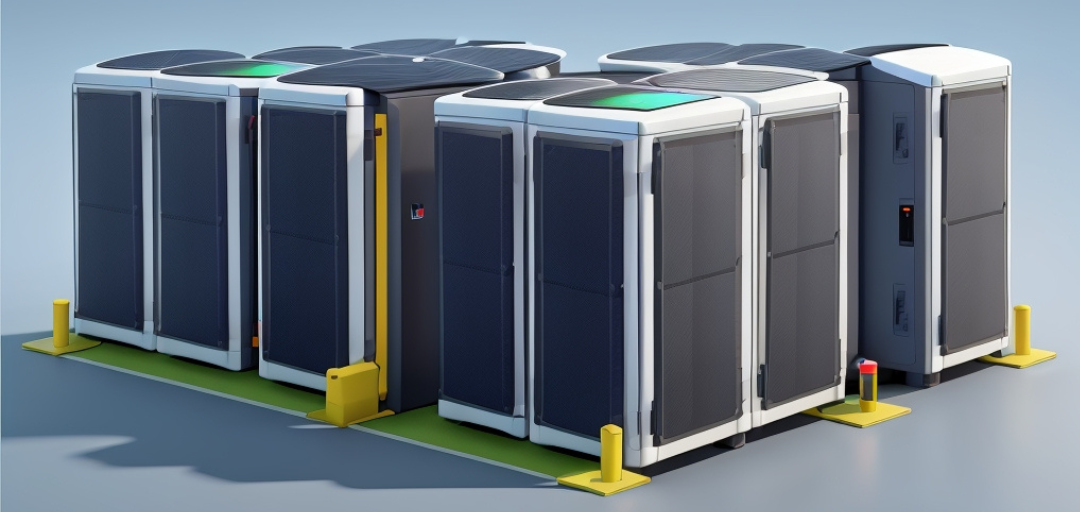
What is a Battery Energy Storage System (BESS)?
A BESS is a system that stores energy from a variety of sources, such as solar panels, wind turbines, or the electric grid. The stored energy can then be used later, when it is needed. BESS are used in a variety of applications, including:
- Solar and wind power: BESS can be used to store solar and wind energy, which can then be used to generate electricity at night or during times of low wind. This helps to make renewable energy more reliable and affordable.
- Backup power: BESS can be used to provide backup power during power outages. This is important for businesses and homes that rely on electricity for critical operations.
- Load shifting: BESS can be used to shift energy usage from peak demand times to off-peak times. This can help to reduce electricity bills and improve grid reliability.
- Frequency regulation: BESS can be used to regulate the frequency of the electric grid. This is important to ensure the smooth and reliable operation of the grid.
How Does a BESS Work?
A BESS typically consists of the following components:
- Batteries: The batteries store the energy. There are two main types of batteries used in BESS: lead-acid batteries and lithium-ion batteries.
- Lead-acid batteries are less expensive, but they have a shorter lifespan than lithium-ion batteries. Lithium-ion batteries are more expensive, but they have a longer lifespan and can store more energy.
- Inverter: The inverter converts the stored energy from DC to AC so that it can be used by your home appliances.
- Controller: The controller manages the flow of energy between the batteries, the inverter, and the grid.
Benefits of BESS
There are many benefits to using a BESS, including:
- Reduced electricity bills: BESS can help to reduce electricity bills by storing solar energy that would otherwise be wasted.
- Increased self-consumption: BESS can help to increase self-consumption of solar energy, which means that you use more of the energy that your solar panels generate and less of the energy from the grid.
- Backup power: BESS can provide backup power during power outages.
- Improved grid reliability: BESS can help to improve grid reliability by storing energy and providing backup power during outages.
- Increased property value: BESS can increase the value of your property by making it more energy efficient and reducing your reliance on the grid.
Installation Process of BESS
The installation process for a BESS is similar to the installation process for solar panels. The batteries and inverters will be installed on your property, and the system will be connected to your solar panels and the grid.
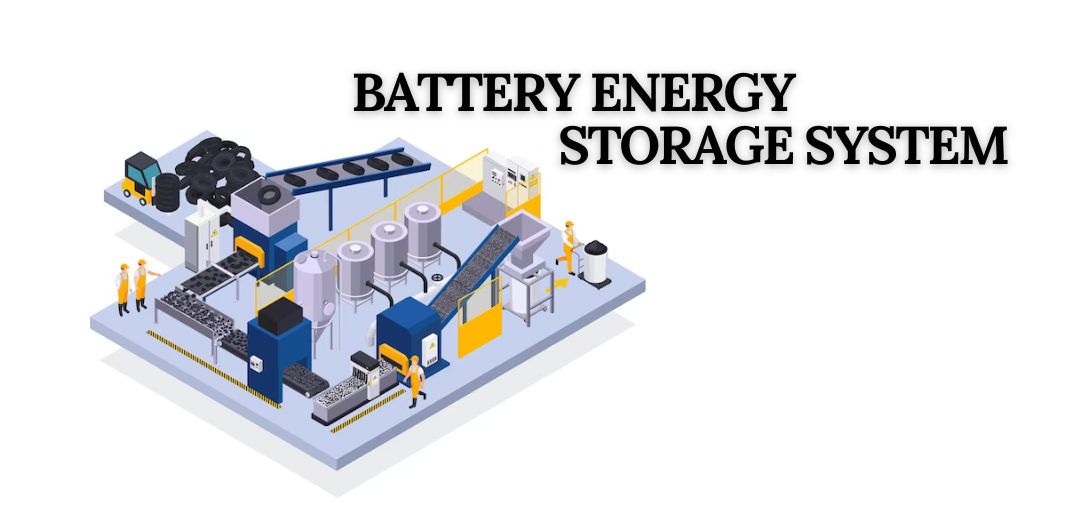
Choosing the Right Battery Energy Storage System
Selecting the right BESS for your needs is crucial. Here are some factors to consider:
- Capacity: Determine how much energy you need to store to meet your electricity needs during periods of low renewable energy generation. The capacity of the batteries is a critical factor.
- Chemistry: Different battery chemistries (e.g., lithium-ion, lead-acid, flow batteries) offer various performance characteristics, such as energy density, cycle life, and temperature tolerance. Choose the one that aligns with your requirements.
- Inverter Compatibility: Ensure that your solar inverter is compatible with the chosen BESS to optimize energy flow and efficiency.
- Warranty and Lifespan: Look for BESS products with robust warranties and a long lifespan to maximize your return on investment.
- Integration and Control: Consider how well the BESS integrates with your existing solar system and whether it offers user-friendly control options.
- Safety: Safety features such as thermal management and protection against overcharging and discharging are critical for the long-term performance of your BESS.
- Cost: While BESS can be a significant investment, calculate the potential savings and incentives to determine the payback period.
The Maintenance and Repair Costs
The maintenance and repair costs for a BESS are relatively low. The batteries will need to be replaced every 5-10 years, but the inverters should last for many years.
Who Needs a BESS?
BESS are a good option for a variety of people, including:
- Solar business owners: BESS can help solar business owners to reduce their electricity bills and improve the reliability of their solar systems.
- Homeowners with solar panels: BESS can help homeowners with solar panels to increase their self-consumption of solar energy and reduce their reliance on the grid.
- People who live in areas with frequent power outages: BESS can provide backup power during power outages.
- Businesses that rely on critical operations: BESS can provide backup power for businesses that rely on critical operations, such as hospitals and data centers.
Conclusion
BESS is a valuable tool for anyone who wants to reduce their reliance on the grid, save money on their electricity bills, or protect themselves from power outages. If you are considering installing a BESS, I recommend that you contact a solar installer or a battery storage company. They can help you to assess your needs and recommend the right system for you.
Here are some additional things to keep in mind when considering a BESS:
- The size of the BESS you need will depend on your energy needs and the amount of solar energy you generate.
- You will need to choose the right type of batteries for your BESS. Lead-acid batteries are less expensive,
READ OUR PREVIOUS ARTICLES:
- Advantages of Wind Energy
- CNG Full Form
- Suzlon Energy share price
- List of Solar Power Plants in India | Top 10 Largest Solar Power Plants in India
- India’s Power Sector Analysis
- Disadvantages of Hydropower
Is India Ready for Electric Vehicles ? - Best Rooftop Solar Panels For Home
- Best Solar Lights for your Home
- JSW Energy Share Price
- Advantages of Nuclear Energy
Related Keys: battery energy storage system, choose battery energy storage system, best battery energy storage system, battery storage system for home, battery storage system for business, battery storage system for off-grid, battery storage system for solar, battery storage system for wind, battery storage system cost, battery storage system lifespan, battery storage system installation, battery storage system maintenance, lead-acid battery, lithium-ion battery, flow battery, sodium-sulfur battery, vanadium redox battery, nickel-metal hydride battery, nickel-cadmium battery, energy storage system, renewable energy storage system, grid-connected battery storage system, off-grid battery storage system, battery storage system for backup power
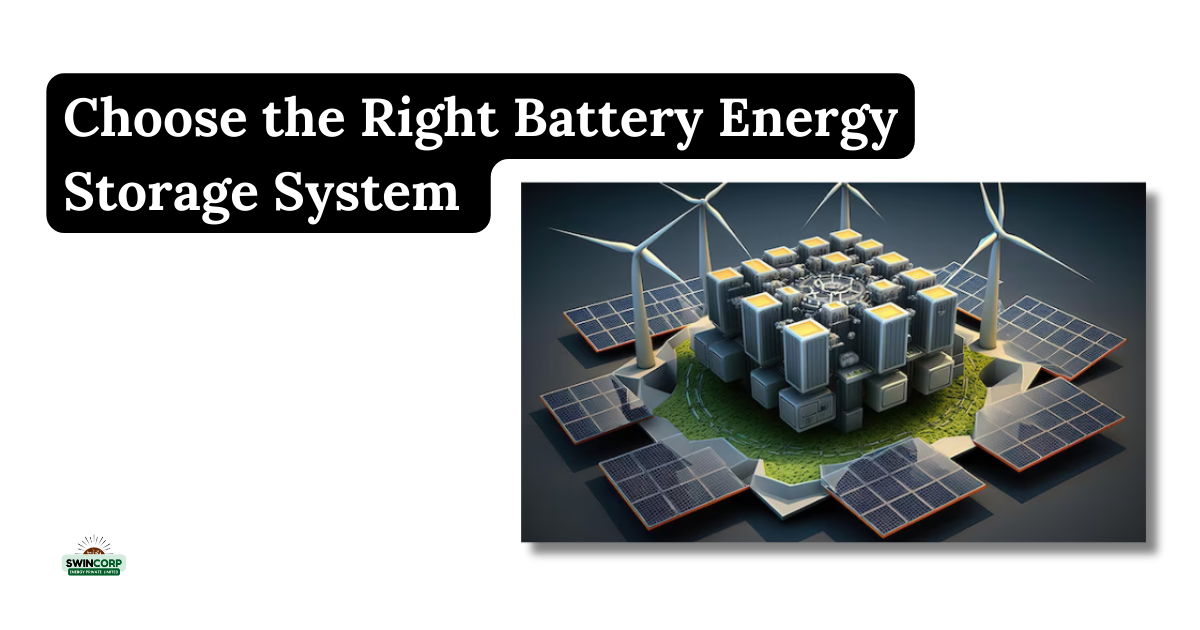
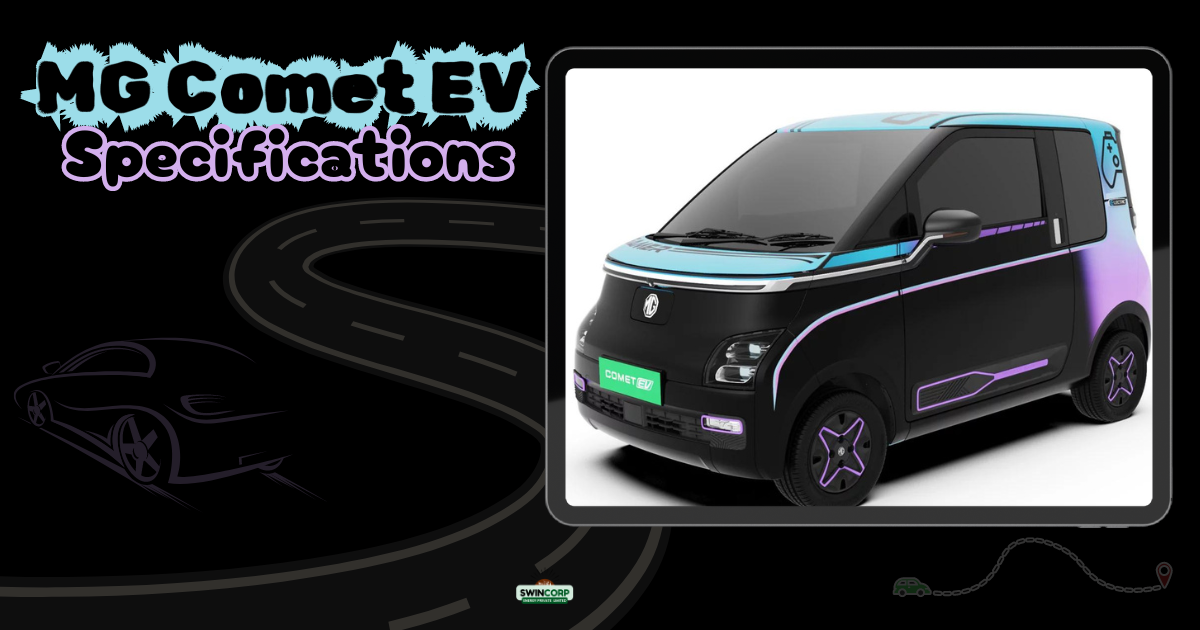


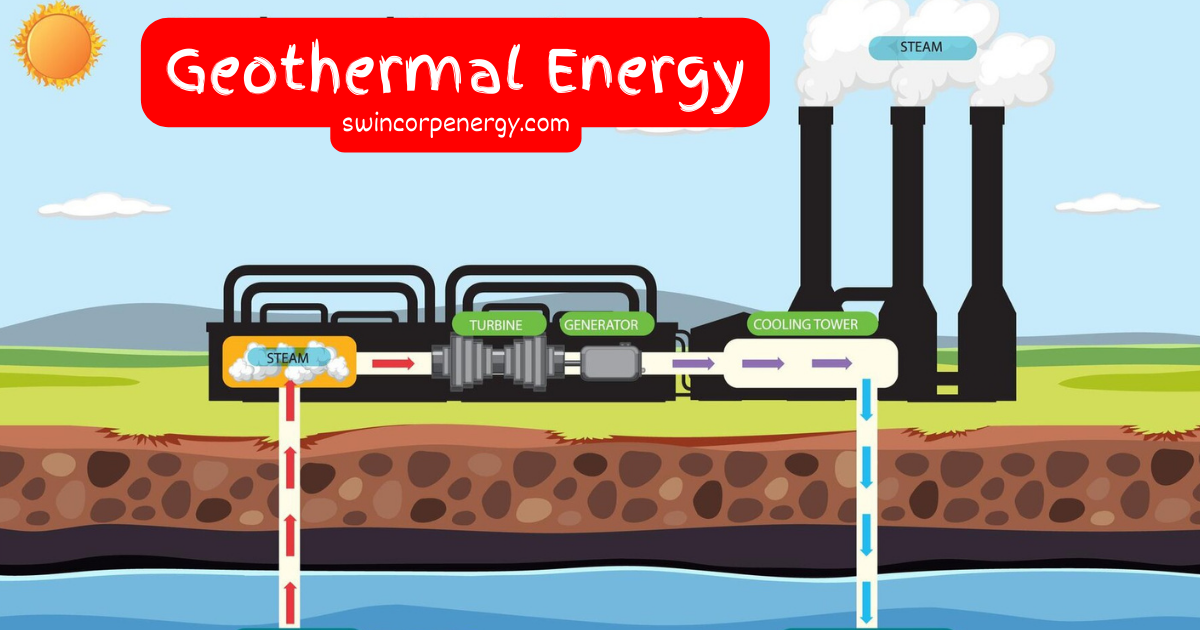
How Does Wind Energy Work : Free Complete Guide - Swincorp Energy
[…] Choose the Right Battery Energy Storage […]
Can I use solar power during a power outage? - Swincorp Energy
[…] Choose the Right Battery Energy Storage […]
Suzlon Share Price - Swincorp Energy
[…] Choose the Right Battery Energy Storage […]
Solar Cell Types - Swincorp Energy
[…] Choose the Right Battery Energy Storage […]
Solar Panel Manufacturing: Process, Production Stages - Swincorp Energy
[…] Choose the Right Battery Energy Storage […]
Solar Trackers : Types, Pros, Cons | Swincorp Energy - Swincorp Energy
[…] Choose the Right Battery Energy Storage […]
A Guide to Solar Inverters - Swincorp Energy
[…] Choose the Right Battery Energy Storage […]
Tata Punch EV: On Road Price, Range, Review - Swincorp Energy
[…] Choose the Right Battery Energy Storage […]
MG Comet EV - Features, Specs & Everything You Need to Know (2024) - Swincorp Energy
[…] Choose the Right Battery Energy Storage […]
Maruti Brezza CNG: Mileage, Review, Features - Swincorp Energy
[…] Choose the Right Battery Energy Storage […]